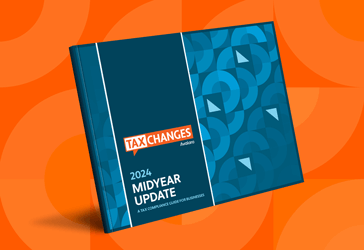States firing more shots in battle over online sales tax
While the evolution of online retailing has offered consumers unprecedented choice and convenience, state governments have looked on in dismay as sales tax revenue for online transactions disappears into cyberspace.
Sales get different tax treatment when they occur online due to a 1992 decision by the U.S. Supreme Court, Quill Corp v. North Dakota, ruling that collection of sales tax is only required for companies that have a physical presence in a state.
States, along with brick-and-mortar retailers, have long lobbied to change this, but federal measures created to deal with the problem have been in the works for years without passing.
Now many states are taking matters into their own hands.
The most recent entry in this fight is South Dakota, which passed a law requiring out-of-state sellers with annual South Dakota sales over $100,000, or 200 separate transactions, to collect sales tax. The law took effect May 1 and that state is pursuing compliance aggressively, already suing four online sellers, including Newegg and Overstock.com, to try to get them to obey the law.
Meanwhile, interests representing online sellers have filed a legal complaint against South Dakota, challenging the constitutionality of the measure. That legal action has triggered an injunction, which prohibits state entities from enforcing the remote seller sales tax law in the meantime.
And although the South Dakota law won’t be enforced immediately, this type of litigation is actually what many states want. Their hope is that the issue will eventually make its way before the Supreme Court again and that the former Quill ruling will be overturned.
Earlier this year, Alabama led the charge with a law requiring out-of-state sellers that conduct certain activities to register for a license and collect sales tax if they make Alabama retail sales of more than $250,000 a year. Other states, such as Utah and Oklahoma, have been active on this front as well.
Meanwhile, federal measures dealing with remote sales tax collection have been grinding their way through Congress. These include the Marketplace Fairness Act and the Remote Transactions Parity Act, which would gives states authority to tax remote sales based on the location of the customer, and the Online Sales Simplification Act, in which remote sales tax would be collected based on the location of the seller.
Even though the struggle over online sales tax is heating up, national resolution could still be years away. In the meantime, however, sales taxes continue to reach further and grow more complicated as states and local jurisdictions seek more revenue sources.
One way of keeping up keeping up with sales tax changes, large or small, is sales tax automation. Avalara AvaTax offers a simple solution for sales tax compliance. AvaTax integrates seamlessly into popular accounting and ecommerce solutions to provide 100% accuracy guarantee sales-tax calculations based on the latest rules, rates and boundaries.
Avalara offers special AvaTax subscription plans for small businesses that can start at just $5 a month and come with a 60-day money back guarantee.
Stay up to date
Sign up for our free newsletter and stay up to date with the latest tax news.













